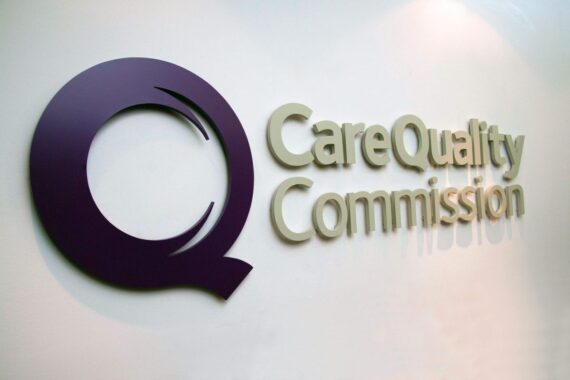CQC to change GP practice inspection framework from November

The CQC is to roll out a new assessment framework from November, which will still involve ratings and five ‘key questions’.
The new framework will be rolled out regionally, starting with providers in the South of England, including Berkshire, Buckinghamshire, Cornwall, Devon, Dorset, Gloucestershire, Hampshire, Kent, Oxfordshire, Somerset, Surrey, Sussex and Wiltshire.
It will then be rolled out to other regions by the end of March next year.
The new assessment will continue to use five key questions (safe, effective, caring, responsive and well-led) and a four-point ratings scale (outstanding, good, requires improvement and inadequate) but as part of the changes, the CQC will introduce six new ‘evidence categories’ to organise information under the statements.
These new categories are:
- People’s experience of health and care services
- Feedback from staff and leaders
- Feedback from partners
- Observation
- Processes
- Outcomes
The quality statements will focus on ‘specific topic areas’ under key question, setting ‘clear expectations of providers, based on people’s experiences and the standards of care they expect’, which will replace their key lines of enquiry (KLOEs), prompts and ratings characteristics.
In an update to providers, the CQC said: ‘We’ll still schedule assessments by considering the level of risk, so not all providers will need to have an immediate assessment.
‘In other regions, we will continue to use our current assessment framework for now. The new assessment framework will be rolled out to other regions by the end of March 2024, and we will provide further updates as each region moves over to using the new framework.’
CQC chief executive Ian Trenholm said: ‘Making our interactions with providers more streamlined and simpler is central in supporting them to deliver better care.
‘Our new assessment approach will be more flexible and proportionate, and will be the driving force behind giving an up-to-date view of quality.’
The regulator said that it has updated its guidance for providers with the new changes and encouraged all providers to read it to be prepared for the changes.
Providers will be notified of when this new assessment framework will affect them.
The CQC unveiled details of reduced inspections for GP practices at the start of this year to allow NHS staff to ‘focus on delivering for patients‘ during winter pressures. It said it would ‘respond to only the most serious risks where there is a high risk of harm to people.’
Last month, a Government survey found that the CQC inspection process may be ‘disproportionate’, although the incredibly low response rate hampered conclusions.
Pulse October survey
Take our July 2025 survey to potentially win £1.000 worth of tokens

Related Articles
READERS' COMMENTS [10]
Please note, only GPs are permitted to add comments to articles











Does anyone else now have a migraine?
1) There are now many, many services which are clearly unsafe and have been for some time – A&E units, CMHTs, ADHD services, ambulance trusts, Gender Identity clinics etc etc. Where, exactly, does CQC stand on these? It appears they have stuck their organisational head deep in the sand in all these cases.
2) Why does CQC never identify that the causes for many of the problems they identify include systematic underfunding and de-funding of services? All general practice is working in this context: fund us properly and quality will improve.
3) What is the evidence that CQC are a cost-effective and helpful organisation? Is there actual evidence patients are much safer now that CQC exist? Did safety levels drop when their oversight became light touch? Is there any evidence it is much better than the oversight that happened before it existed? Or is it regulation for regulation’s sake?
So, for me, the problems are
1) CQC is happy to punch down when it should be punching up.
2) There doesn’t seem to be any evidence for it’s (expensive) function being worthwhile.
Spot on DT
Darren T has written eloquently above leaving me nothing to add. So in reverting to type, with a small modification: FUCK the CQC, Government Stooges.
Excellent post Darren. Complete waste of money that lot,indeed worse than that, they have caused more harm than benefit!
no point in wasting words on CQC. ther primary purpose is to create an illusion of monitoring or action from an independent regulator, that to the public would seem legit and proper. anyone who knows how they work or what they do will be able to smell the stink, but we are a tiny minority of population so nobody carers. a bit like annual appraisals- an illusion of monitoring of doctors activity.
The political art of doing something that is actually nothing rather than be accused of doing nothing. Any change, adjustment, reorganisation we all know has zero benefit for patient care as inspection is well known in research to have no beneficial effect on quality. The one action that might improve things would be to stop inspections and redeploy staff to the front line especially in areas where there is concern. Increased input of clearly highly skilled knowledgeable people who can lead by example in raising quality.
Dear All,
The last people I’d want deployed to the frontline would be CQC inspectors, GP advisors or staff. Better divert their funding into core GMS and let them fight for real jobs in the real world.
Regards
Paul C
Again spot on DT
Agree totally DT. I have lobbied for monies spent on CQC £280M plus innumberable addiional on-costs to organisations, to be moved into front line care e.g. GP at no net cost to UK govt.. It could be slimmed down into a much smaller assistance organisation that provides workforce and financial support to the outlying 5% of practices who are known prior to inspection. As DT says so eloquenty, they could “punch up” to push for funding into under-resources practices that they identify. So carrot not stick.